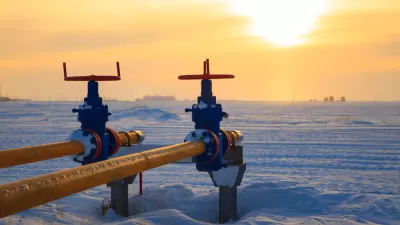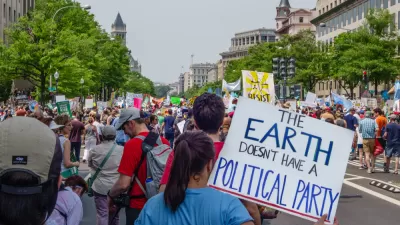Written by Wall Street Journal energy reporter Russell Gold, the new book offers three recommendations that should be acceptable to all parties, from fracking's strongest supporters to its most ardent opponents.
The three recommendations found in "The Boom: How Fracking Ignited the American Energy Revolution and Changed the World", were formulated after Gold spoke with "hundreds of engineers, executives, academics and environmentalists." The goal of the three measures is to make fracking "safer for people and the planet,"
Gold has written on many aspects of the energy industry, more than a few posted here. Some have an urban as well as energy perspective, such as his piece on Midland, Texas (and posted here).
- Fix the Leaks: Methane Leakage is so serious that some critics have said it makes it worse than burning coal from a greenhouse gas perspective. Others disagree. Good news: "It's a plumbing problem", states Hal Harvey, chief executive of Energy Innovations LLC, a policy and technology consultant.
- "If you want to argue that gas is part of the climate solution, you have to deal with methane leakage," says Harvey. The good news, he adds: "It's a plumbing problem. It's not thermodynamics." Making a power plant twice as efficient is difficult engineering; cutting methane leakage in half isn't. You just find the leaks and plug them."
- Get better data: "The Center for Sustainable Shale Development, a joint effort of major operators, environmental groups and foundations, says that it is critical to test groundwater before drilling begins and then for at least a year afterward."
- Build better wells: "Faulty cement doomed the Deepwater Horizon rig in the Gulf of Mexico and led to the death of 11 men and the worst offshore environmental disaster in U.S. history."
As much as some may oppose this type of oil drilling, "U.S. energy companies are drilling and fracking about 100 wells every day across much of the country," he writes. It has become embedded in our economy and is key to the nation's energy security. Notwithstanding serious methane leakage, it has been instrumental in reducing carbon dioxide emissions to 1992 levels.
So why not take the measures he recommends to make it safer for people and planet? You can access major book vending websites and read reviews from Gold's website on "The Boom".
FULL STORY: How to Make Fracking Safer

Planetizen Federal Action Tracker
A weekly monitor of how Trump’s orders and actions are impacting planners and planning in America.

Maui's Vacation Rental Debate Turns Ugly
Verbal attacks, misinformation campaigns and fistfights plague a high-stakes debate to convert thousands of vacation rentals into long-term housing.

San Francisco Suspends Traffic Calming Amidst Record Deaths
Citing “a challenging fiscal landscape,” the city will cease the program on the heels of 42 traffic deaths, including 24 pedestrians.

Amtrak Rolls Out New Orleans to Alabama “Mardi Gras” Train
The new service will operate morning and evening departures between Mobile and New Orleans.

The Subversive Car-Free Guide to Trump's Great American Road Trip
Car-free ways to access Chicagoland’s best tourist attractions.

San Antonio and Austin are Fusing Into one Massive Megaregion
The region spanning the two central Texas cities is growing fast, posing challenges for local infrastructure and water supplies.
Urban Design for Planners 1: Software Tools
This six-course series explores essential urban design concepts using open source software and equips planners with the tools they need to participate fully in the urban design process.
Planning for Universal Design
Learn the tools for implementing Universal Design in planning regulations.
Heyer Gruel & Associates PA
JM Goldson LLC
Custer County Colorado
City of Camden Redevelopment Agency
City of Astoria
Transportation Research & Education Center (TREC) at Portland State University
Jefferson Parish Government
Camden Redevelopment Agency
City of Claremont




























